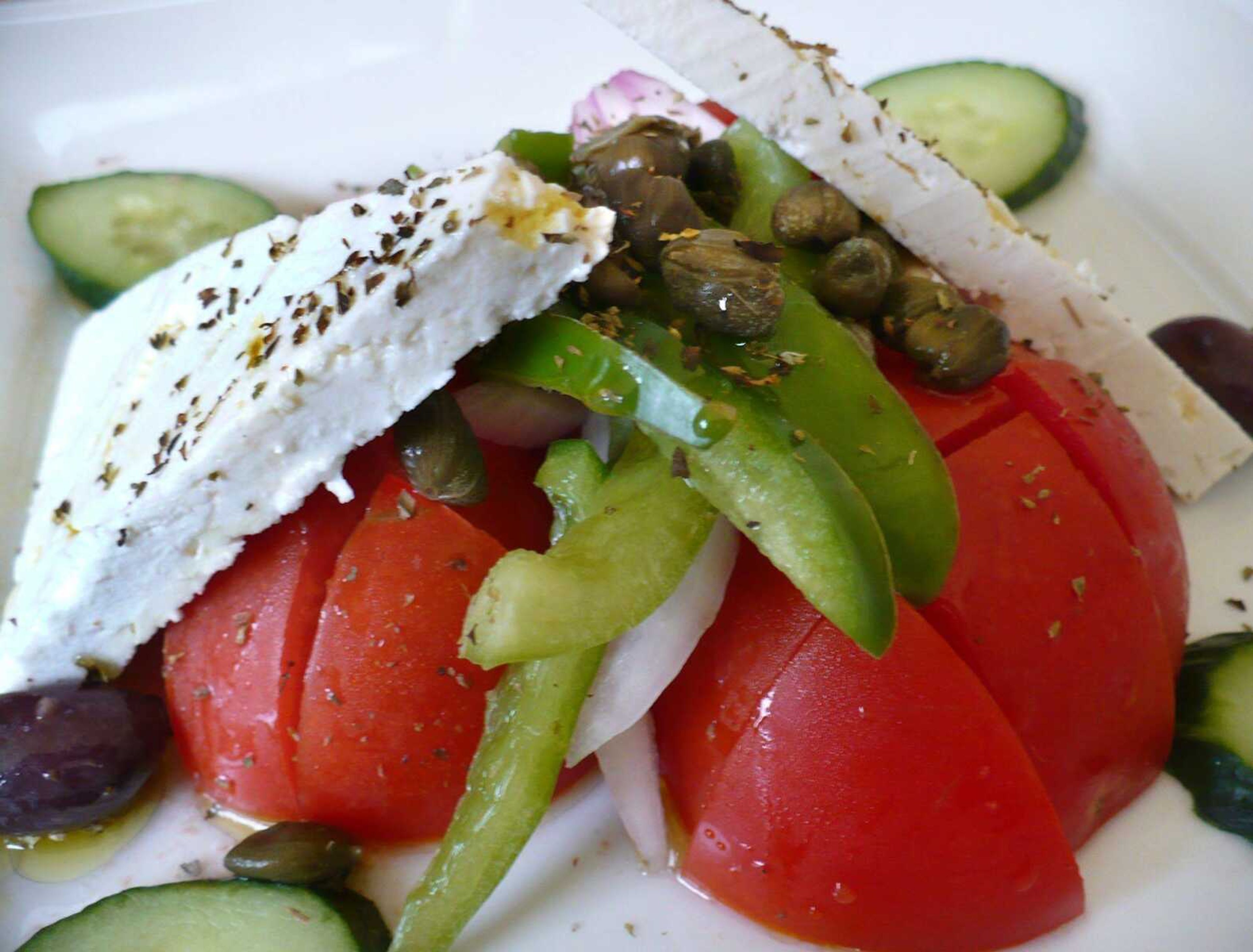A Harte Appetite: Feta cheese is classically Greek
I've recently returned from Athens, Greece, and just like every other time I've visited there I've come away with a renewed appreciation for the contributions of the ancient Greeks to human civilization. No, I'm not talking about democracy, the theater or even the Olympics. I'm talking about feta cheese...
I've recently returned from Athens, Greece, and just like every other time I've visited there I've come away with a renewed appreciation for the contributions of the ancient Greeks to human civilization. No, I'm not talking about democracy, the theater or even the Olympics. I'm talking about feta cheese.
To me, feta cheese -- sometimes referred to as the princess of cheeses -- is every bit as admirable as any other Greek invention, and it is surely just as ancient. It is likely as old as Greece itself. In his epic work, "The Odyssey," written thousands of years ago, Homer identifies perhaps the first known cheese maker in history, the cave-dwelling Cyclops Polyphemus, who satisfied his voracious appetite by making cheese from sheep's milk. The process he describes is much the same as that still used by Greeks today to make feta cheese. (Alas, Odysseus, the hero of the tale, learned as he watched the Cyclops devour six of his men that Polyphemus did not confine his diet only to dairy products.)
Ancient Greek writers, thinkers and playwrights such as Aristotle, Euripides and Pythagoras wrote about cheese. In fact, the ancient Greeks considered cheese to be one of the foods of the gods, given as a gift to mere mortals when Aristaeus, the son of Apollo, was sent down from Mount Olympus to teach the Greeks the art of cheese making.
Ever since, cheese -- especially feta cheese, which accounts for 40 percent of all the cheese consumed in Greece -- has been the heart and soul of Greek gastronomy. Often a slab of feta served with a little olive oil and some oregano is the first food brought to the Greek table at meal time. In fact, for the Greeks, cheese has a place at almost any meal and at any time of day. Unlike the French who think of cheese as dessert or the Italians who regard it as an appetizer, the Greeks consider cheese a central, not a supplementary, part of a meal.
They'll eat tyropita or cheese pie, for example, at breakfast, lunch or dinner. No doubt this is the reason the Greeks are the biggest consumers of cheese within the European Union, edging out even the French despite the fact that they produce, as Charles de Gaulle once famously observed, some 246 different kinds.

No wonder, then, that Greece waged a 16-year battle in the European Court of Justice to obtain protected status for the name feta, which is actually derived from the Italian word for slice. They were successful. Though other countries have their imitations, only cheese made in Greece can be legally labeled feta.
Now it is true, as internationally decorated cheese monger and Missouri native Steven Jenkins observes, that feta cheese does not approach the complexity of the great cheeses of France, Italy or Switzerland. But its simplicity is part of its attraction and enough to make me say, "Feta, I'm glad I met ya."
Greek Salad
The Greek salad or horiatiki salata ranks right up there with the Nicoise, the Caesar and the Cobb as a culinary masterpiece even though in Greece it's known as a peasant salad. Recipes vary, but feta cheese, of course, is an indispensable ingredient. Though some unscrupulous tavernas, even in Athens, will try to pad the salad with cheap lettuce, an authentic version contains none, as in this recipe adapted from Gourmet magazine. This is the way they make the salad on the Greek island of Crete, which just last month set the record for the world's largest Greek salad, containing more than 1,700 pounds of feta.
1/2 green bell pepper, sliced
1/4 cucumber, sliced
1/2 small red onion, sliced
2 tomatoes, cut in wedges
1/3 cup pitted Kalamata olives
2 teaspoons finely chopped oregano
2 teaspoons fresh lemon juice
2 tablespoons olive oil
6 ounces feta cheese
Toss together all ingredients except feta cheese. Season with salt and pepper. Divide salad among four plates. Cut feta into four slices and place a slab atop each salad portion.
Tom Harte's book, "Stirring Words," is available at local bookstores. A Harte Appetite airs Fridays 8:49 a.m. on KRCU, 90.9 FM. Contact Tom at news@semissourian.com or at the Southeast Missourian, P.O. Box 699, Cape Girardeau, MO 63702-0699.
Connect with the Southeast Missourian Newsroom:
For corrections to this story or other insights for the editor, click here. To submit a letter to the editor, click here. To learn about the Southeast Missourian’s AI Policy, click here.











